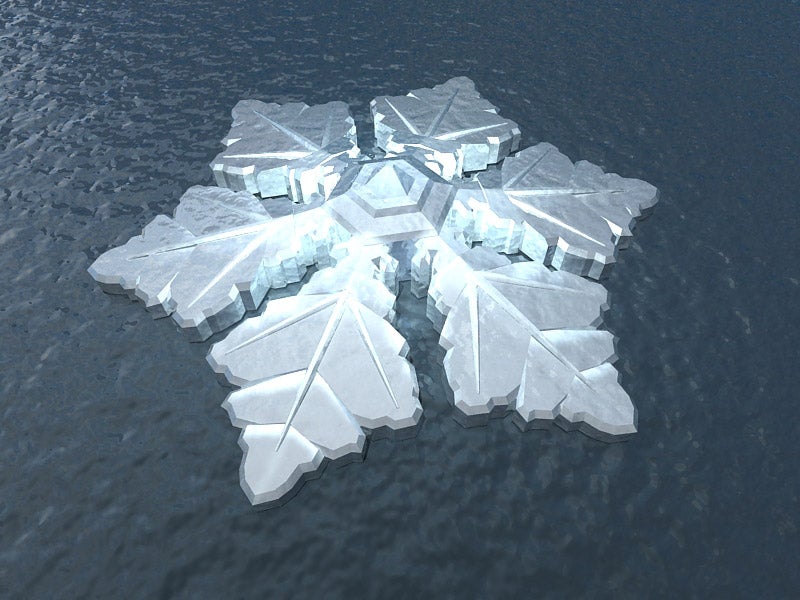View the Northern Lights in a floating glass snowflake hotel
Dutch and Norwegian experts collaborated on the project, which will have 86 bedrooms in a luxury hotel only accessible by boat

Your support helps us to tell the story
From reproductive rights to climate change to Big Tech, The Independent is on the ground when the story is developing. Whether it's investigating the financials of Elon Musk's pro-Trump PAC or producing our latest documentary, 'The A Word', which shines a light on the American women fighting for reproductive rights, we know how important it is to parse out the facts from the messaging.
At such a critical moment in US history, we need reporters on the ground. Your donation allows us to keep sending journalists to speak to both sides of the story.
The Independent is trusted by Americans across the entire political spectrum. And unlike many other quality news outlets, we choose not to lock Americans out of our reporting and analysis with paywalls. We believe quality journalism should be available to everyone, paid for by those who can afford it.
Your support makes all the difference.Watching the Northern Lights glistening on the sky’s natural canvas may be on your bucket list already, but be prepared to up the ante.
A Netherlands-based developer is creating a floating, snowflaked-shaped glass hotel from which guests can stare in awe at the Aurora Borealis from their beds.
The project, which began in 2008, is called Krystall and will be getting underway again after the financial crisis rendered it postponed.
Eighty-six luxury rooms will be encased within a glass structure alongside conference rooms and a spa, all of which is only accessible by boat, to ensure its five-star status.
The stationary hotel will be installed near Tromso in northern Norway reportedly between fjords, with work to commence mid-2015 and an estimated opening projected for late 2016.
It will be constructed, in pieces, in dry docks, the architect said, before being assembled on location.
Explaining the physics and design of the hotel, Koen Olthuis, Dutch architect and founder of Waterstudio, a specialist in floating structures, said: “The floating [base] is very big and because of that also very stable. You will not notice any movement.
“Different to any vessel this hotel is floating real estate and will not move. The shape provides most of the stability but additional technology with dampers, springs and cables is used to take away any acceleration.
“Same look and feel as a land based hotel but then on the most beautiful spot on the water. The hotel is not connected to land so all the logistics will be provided by boats.”
According to Mr Olthuis, who wouldn’t reveal the actual cost of the project, the budget is 15 per cent more than it would have been if it were built on land.
He said that a crucial caveat to the hotel’s construction was for its creation to be “scarless” on the pristine environment surrounding it.
“We call it a scarless development. If you take it away after hundred years or so it will not leave any physical footprint. That is the only way to bring developments to such a precious and beautiful marine environment in Norway or Maldives.”
Waterstudio is working in collaboration with Mr Olthuis’s other firm, Dutch Docklands, undertaking a number of ambitious projects including 80-million sq feet of floating developments in the Maldives in a joint venture with the Indian Ocean nation.
“Our joint venture projects with the Maldivian Government and the Ocean Flower in particular have taken all our attention the last years,” Mr Olthuis said.
“Now that the construction of the 185 floating villas for the Maldives has started we restarted the paused project [Krystall] in our portfolio.”
It is hoped that the hotel will be “self-supporting and sustainable” using top of the range technology in an area close to an international airport, helping to buoy the “growing eco-tourism market.”
“Dutch Docklands has learned to live with the water instead of fighting it,” the firm states. “Floating houses are common in the Netherlands but we took that technology abroad and scale it up in size.”
Join our commenting forum
Join thought-provoking conversations, follow other Independent readers and see their replies
Comments